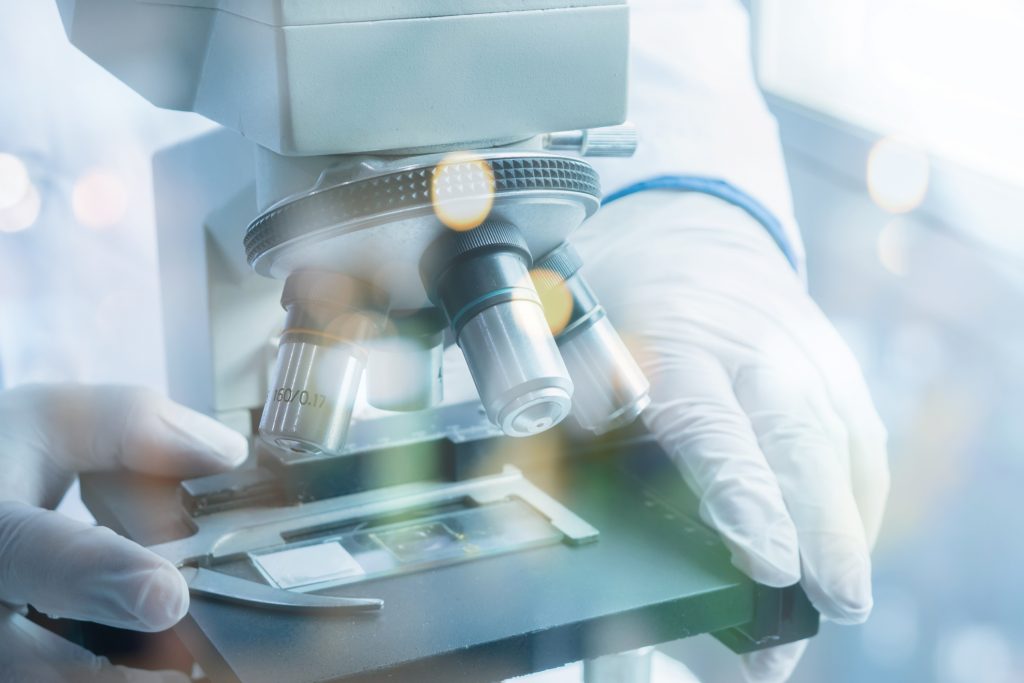The Novo Nordisk Foundation has awarded grants of nearly DKK 10 million each to 12 individual scientists in the Nordic countries. The grants are for research within biotechnology-based synthesis and production and are part of the Foundation’s Research Leader Programme, which supports ambitious, original research projects and the continuing development of top researchers.
Genetically engineered microorganisms transform sugar into food ingredients, medicine and laundry detergents while exhaling CO2. Marine algae inhale CO2 and use energy from the sun to convert it into biological materials. Can genetically engineered microalgae replace the sugar-eating microorganisms while converting CO2 into valuable bioproducts?
The Calvin cycle is one of the most important metabolic pathways on Earth. It is present in plants and in CO2-fixating bacteria that utilise light power or energy-rich gases. Can the bacterial Calvin cycle be optimized to improve the CO2 fixation rates and enable sustainable production of compounds and fuels?
Microbial food spoilage is a major challenge for all food business operators, causing about 30% of all manufactured perishable foods to spoil. Can testbeds employing artificial intelligence recognizing recurrent gene expression markers of the microbiome be used to estimate the freshness and remaining shelf life of a food product?
These are major questions for three of the 12 ambitious research projects that are receiving grants of nearly DKK 10 million each from the Novo Nordisk Foundation. The grants are part of the Foundation’s Research Leader Programme and fund excellent and ambitious biotechnology research projects aimed at generating products in improved and more sustainable ways.
The 5-year grants aim to give the researchers the opportunity to pursue substantial projects through a targeted and long-term grant that ensures focus and continuity in their research.
Grants are awarded in each of the following categories:
- Emerging Investigators. Beginning independent researchers establishing their own research groups or strengthening their recently started groups.
- Ascending Investigators. Associate professor–level investigators capable of leading larger and more challenging studies.
- Distinguished Investigators. Professor-level investigators with demonstrated ability to address major research questions.
The grants are awarded in open competition based on the applications submitted. The Foundation’s Committee on Biotechnology-based Synthesis and Production Research assessed all 69 applications received from applicants in the Nordic countries.
The Foundation’s Research Leader Programme supports talented research leaders at all stages of their careers and aims to support the continuing development of top researchers. The Foundation just announced that it has awarded a total of DKK 400 million to 41 research leaders under the Programme. Read more here.
Grants under the Programme are awarded within four scientific fields: endocrinology and metabolic research; biotechnology-based synthesis and production research; clinical and translational research; and bioscience and basic biomedical research.
The 2020 grant recipients within biotechnology-based synthesis and production research are as follows.
Emerging Investigators
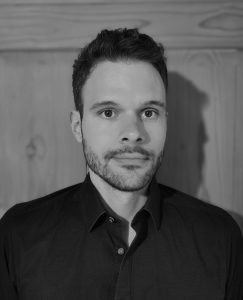
Christopher Kesten, PhD, postdoctoral fellow
Department of Plant and Environmental Sciences, University of Copenhagen
Project title: Engineering Cellulose Synthases to Custom-build Plant Cell Walls
Grant amount: DKK 9,999,589
Christopher Kesten says: “Cellulose is the main component of the plant cell wall and constitutes the bulk of plant biomass. As such, it is one of the most important natural resources for our society. Indeed, cellulose provides, directly and indirectly, important components of our daily life: food, animal feed, fibres and clothing, building material and fuel. The cellulose polymers are built from glucose units that are linked via glycosidic bonds and that can align with each other to form strong microfibrils. This project is aimed at engineering the proteins that make cellulose to change its molecular composition: to exchange glucose with other sugars. Such engineering holds groundbreaking possibilities to tailor-make cellulosic materials with diverse physical properties that can be specifically adapted for a vast number of applications, such as custom-made filter materials or bioactive gels.”
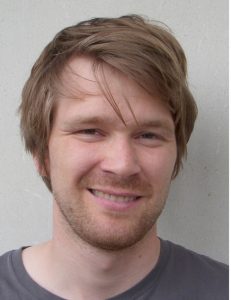
Johan Andersen-Ranberg, PhD, postdoctoral fellow
Department of Plant and Environmental Sciences, University of Copenhagen
Project title: SunMade – Engineering the Eukaryotic Algae N. oceanica for Sustainable Bioproduction
Grant amount: DKK 9,999,140
Johan Andersen-Ranberg says: “Genetically engineered microorganisms are today widely used for producing everyday items such as food ingredients, medicine and laundry detergents. Most of these microorganisms eat sugar, coming from plantations that have replaced tropical rain forests, and while producing a desired product they exhale CO2. Marine algae that have existed on earth for billions of years do the exact opposite when they grow. They inhale CO2 and use energy from the sun to convert it into biological materials. Algae can also be used for production, but since we cannot genetically engineer algae the same way as with the sugar-eating microorganisms, only a limited number of products, including baby formula supplements, are made using algae today. SunMade wants to change this by developing the genetic engineering tools that will enable the sustainable production of food ingredients and protein in algae. The long-term goal is thus to replace sugar-eating microorganisms with algae, to enable the direct conversion of CO2 into valuable bioproducts that are widely used in our society today.”
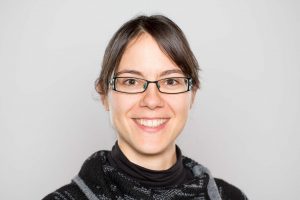
Aniko Varnai, PhD, researcher
Faculty of Chemistry, Biotechnology and Food Science, Norwegian University of Life Sciences, Ås
Project title: FunAccess: Leveraging the Mechanisms by which Fungi Increase Plant Cell Wall Accessibility to Unlock the Industrial Valorization Potential of Plant Biomass
Grant amount: DKK 9,997,521
Aniko Varnai says: “In nature, penetration of the plant cell wall (PCW) is the important first step of plant colonization by fungi, irrespective of lifestyle. For that, fungi need to secrete small PCW-active proteins that can penetrate the pores of the PCW and reach key crosslinks that limit access to the PCW and its cellulose microfibrils in particular. These junction points also hinder biomass processability during enzymatic saccharification and cellulose fibrillation. In FunAccess, we will identify 1) small fungal proteins with predicted or unknown function that increase PCW accessibility and 2) crosslinks in PCWs that limit access to common PCW polysaccharides in native biomass and pulp samples. The ultimate goals are to describe the universal mechanisms fungi use to increase PCW accessibility, with focus on novel PCW-active protein systems, and to demonstrate the potential of these proteins for complete saccharification of biomass and production of nanocellulose beyond the state of the art.”

Magnus Arntzen, PhD, researcher
Faculty of Chemistry, Biotechnology and Food Science, Norwegian University of Life Sciences, Ås
Project title: DENITRO: Oxidative Polysaccharide Conversion in Anoxia by Denitrifying Organisms
Grant amount: DKK 9,461,321
Magnus Arntzen says: “Falling leaves and branches along the shoreline of nitrogen-rich lakes create a niche habitat for denitrifying microbes capable of degrading cellulose. This very same sort of habitat can be found in field denitrification beds, which are cellulose-containing water treatment basins used by Danish farmers to clear the surface water from excess fertilization, in particular nitrate. Within these habitats, cellulose degradation and denitrification occurs, but the underlying microbial interactions and enzymes at work remain unknown. I believe these habitats hold an untapped potential for powerful new cellulose-degrading enzyme systems. In this project, I will reveal the microbes and enzymes at play using a repertoire of state-of-the-art microbial techniques and provide novel insight into cellulose deconstruction in nitrate-rich habitats. This will lay the foundation for innovative bioprocessing strategies with enzyme systems that can utilize nitrate instead of oxygen as co-substrate.”
Ascending Investigators
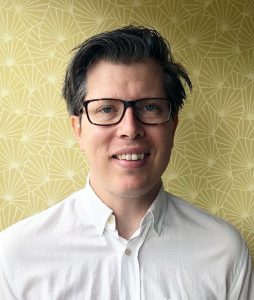
Paul Hudson, PhD, associate professor
School of Engineering Sciences in Chemistry, Biotechnology and Health, KTH Royal Institute of Technology, Stockholm
Project title: The Bacterial Calvin Cycle as an Engine for New Cell Factories
Grant amount: DKK 8,880,000
Paul Hudson says: “The Calvin cycle is one of the most important metabolic pathways on Earth. While we know that it operates in plants all around us, the Calvin cycle is also present in diverse bacteria. These bacteria also fix CO2, some using light power and other using energy-rich gases. The bacterial Calvin cycle is of high industrial interest, since these CO2-fixing bacteria could be engineered to produce useful compounds and fuels. However, we know far less about the bacterial Calvin cycle than we do about the plant Calvin cycle. This research programme is a 5-year effort to explore the bacterial Calvin cycle, to gain new insight into how to improve the rates of CO2 fixation and to test these strategies. At the core of the effort is a mathematical model of the Calvin cycle, which we can use to simulate the cycle behaviour under different environment conditions. A key component of the programme is acquiring data on mutants of the Calvin cycle, which we can use to train the model.”
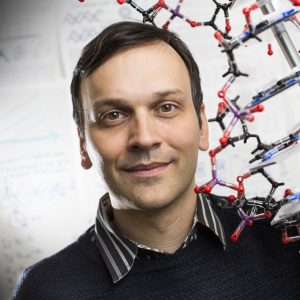
Ebbe Sloth Andersen, PhD, associate professor
Interdisciplinary Nanoscience Center, Aarhus University
Project title: RNA-based Platform for Metabolic Pathway Engineering
Grant amount: DKK 9,935,933
Ebbe Sloth Andersen says: “Cells work efficiently because of their internal organization, which can be compared with a factory with robots in assembly lines. The cell uses this molecular machinery to orchestrate its metabolism with the sole purpose of sustaining life. As genetic engineers, we are attempting to redirect this purpose to produce valuable proteins and chemicals more efficiently. This project aims to develop a new RNA-based platform to organize, regulate and detect production pathways based on rational design methods for RNA nanostructures and devices. The project will initially demonstrate how organizational principles can be used to improve production yields, and if successful, we hope that the toolbox will be used in industrial biotechnology to generate biofuels, specialty chemicals and biological drugs from renewable resources.”
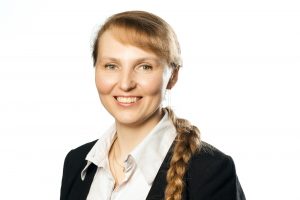
Irina Borodina, PhD, senior researcher
TheNovo Nordisk Foundation Center for Biosustainability, Technical University of Denmark, Lyngby
Project title: Engineering Small-molecule Transport in Cell Factories
Grant amount: DKK 10,000,000
Irina Borodina says: “A record-wet spring, a record-dry summer, a record-warm winter. In Denmark, as in the rest of the world, we have witnessed the dramatic climate changes caused by human civilization. Can we stop using fossil fuels and reduce the massive carbon emissions? Many technological solutions for green jet fuels and plastics have already been delivered by biotechnology. Many more solutions are on the way. Now it is a matter of adopting them and making them even more effective. This research project deals with the improvement of biobased production of fuels and chemicals through the study of metabolite transport by microbial cells. The engineered cells serve as catalysts in converting renewable feedstocks into fuels and chemicals via fermentation. With the help of the new knowledge from this project, scientists can design how metabolites move inside the cells and get secreted and, in this way, make fermentation processes more effective and sustainable.”

Stephan Wenkel, PhD, associate professor
Department of Plant and Environmental Sciences, University of Copenhagen
Project title: MORE – MicroProtein Engineering to Optimize Plant Development to Increase Resources
Grant amount: DKK 9,999,849
Stephan Wenkel says: “Growing enough plants for industrial use and the increasing human population is, in the face of climate change, one of the biggest challenges in the coming decades. The challenge is not only to produce more but also to conserve and protect ecosystems from being converted into agricultural land. To meet this challenge, novel plant varieties with optimized features are needed. In the past 10 years, our laboratory has identified and characterized microProteins, which are small regulatory proteins that strongly control the growth behaviour of plants. By altering the expression and activity of these microProteins, we aim to control specific traits of crop plants. In the future, such optimized varieties may be more resistant to environmental challenges and use less space to produce equal yield.”
Distinguished Investigators
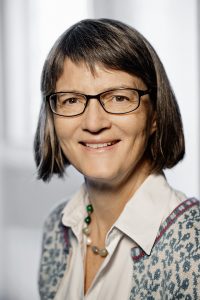
Barbara Ann Halkier, DSc, Professor
Department of Plant and Environmental Sciences, University of Copenhagen
Project title: Exploiting Beneficial Microbes to Biostimulate Plant Productivity and Crop Yield in Sustainable Food Production
Grant amount: DKK 9,996,000
Barbara Ann Halkier says: “Towards the goal of increasing food production while sustainably managing natural resources, there is an urgent need to find alternative solutions to present-day crop production with heavy use of synthetic agrochemicals. Harnessing nature’s beneficial microbes to sustain and improve crop productivity and yield is regarded a cornerstone of the next green revolution. Our aim is to isolate new beneficial microbes contributing plant growth promotion to plants from soils across Danish habitats. Using a model plant, we will gain mechanistic understanding of the role of exuded plant metabolites in recruiting and maintaining beneficial microbes. An innovative approach for pre-inoculation of seeds to sustain the viability of beneficial microbes will be developed and translated to field trials on nutrient-poor soils. Our research will contribute new knowledge and biotechnological tools for the application of beneficial microbes as biostimulants in sustainable food production.”
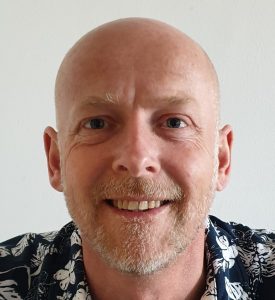
Søren Bak, PhD, professor
Department of Plant and Environmental Sciences, University of Copenhagen
Project title: EcoSap: Triterpenoid Saponins as Green Solutions for Future Sustainable Food Production
Grant amount: DKK 9,995,915
Søren Bak says: “We need to find new ways to secure sustainable food production. EcoSap will contribute to this goal by learning from nature. Plants and insects have coexisted for millions of years, and plants have evolved a refined arsenal of chemical compounds to defend themselves against insect pests. The number of plant defence compounds vastly outcompetes the number of synthetic insecticides and, importantly, they comprise many more modes of action than synthetic pesticides have to target insect pests. My group has identified a class of compounds called saponins that can target insect species that are resistant to most synthetic insecticides. EcoSap will find out how these compounds work at the molecular level. To be of use for agriculture, we will explore how to obtain such saponins from biowaste sources and how to scale up their production. Finally, we will test these compounds against insect pests and non-target organisms to evaluate their potential as green solutions for insect pest management.”
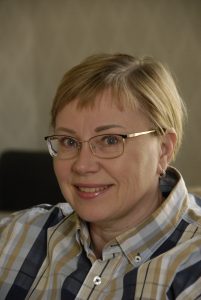
Johanna Björkroth, PhD, professor
Faculty of Veterinary Medicine, University of Helsinki
Project title: Longitudinal Gene Expression Markers Conceptualized to Innovate Artificial Intelligence Platforms for the Assessment of Microbial Food Spoilage
Grant amount: DKK 9,995,584
Johanna Björkroth says: “Microbial food spoilage is a major challenge for all food business operators manufacturing perishable foods. It is generally estimated that around 30% of manufactured food is spoiled, mainly because of microbes. Currently, the food industry has to rely on unspecific tools while setting shelf lives for perishable food items. My aim is to develop biotechnological tools allowing from one point of analysis 1) the estimation of how fresh the food is and 2) the prediction of what the remaining shelf life is. None of the current methods allow this, and a new way to conceptualize food spoilage is needed. I am convinced that it is possible to detect recurrent gene expression patterns taking place in all spoilage microbiomes under the selective pressures of cold and the common packaging systems. From the fundamental microbiome research results, I will build intelligent testbeds employing artificial intelligence, recognizing gene expression markers reporting how close to spoilage the food is.”
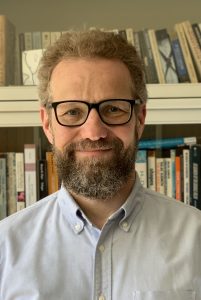
Markus Linder, PhD, professor
Department of Bioproducts and Biosystems, Aalto University
Project title: A Combinatorial Approach towards Biological Materials (CATBAT)
Grant amount: DKK 9,829,540
Markus Linder says: “In our society, there is a strong desire to use sustainable materials and products. Towards this, there is a large effort to study materials made of biological components. These materials would not result in degradability problems like we see with microplastics. Biological materials also function efficiently as carbon sinks. One of our main challenges is that we need to make these biological materials so that they have very good properties, since inferior materials would not provide a real advantage. Looking at, for example, nacre and silk, which are excellent materials, we know that high performance is in principle possible in fully biological components. Using genetic engineering, we can make new silk proteins, and in this project, we will especially look at how molecules should be designed to best fit industrial production processes. For this, we will use nature’s own mechanisms of selection and evolution. We aim for results that could widely change how materials are produced and used in our society.”

